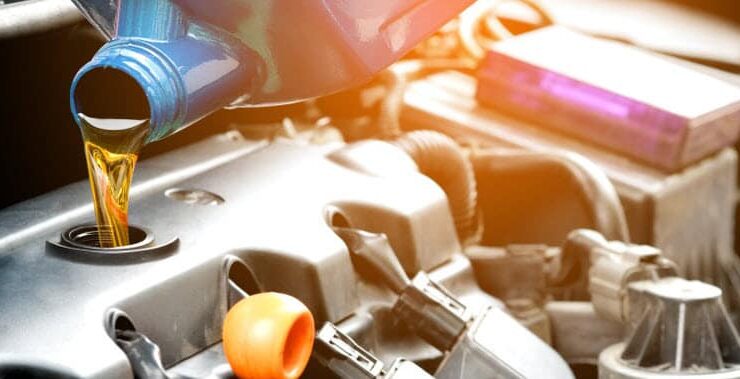
As we leave the cold weather behind and going into warmer weather, it’s getting hotter, and temperatures will continue to rise over the coming months. While it’s good news for beachgoers, the weather isn’t ideal for your car, which is easily affected by the heat. Vehicles are more likely to overheat in warmer weather, one of the leading causes of breakdowns on most roads.
Despite most modern vehicles being built to withstand extreme changes in temperatures, when your car is exposed to severe weather, whether it is freezing or sweltering, it always affects your diesel engine in one way or the other. When your vehicle has to run in dry and hot weather conditions for weeks at a time, this will impact the engine’s safety and performance, so it’s essential to maintain the vehicle’s upkeep.
But what exactly does heat do to your vehicle, and what are the steps you can take to prevent damage and performance problems? This article looks at the impact of hot weather conditions on your engine’s components and what you can do about it.
Battery
While cold weather can be brutal on your car battery, the heat of the summer can take its toll too. Excess heat also accelerates corrosion of the battery. Very high temperatures hinder the chemical processes inside a vehicle’s battery, meaning the battery works harder to hold the charge and produce power. This problem is also made worse by increasing load from the fans, the air conditioning system windows, and electrically convertible roofs. With all these functions plus the high heat, the battery will struggle to cope.
The solution to this problem is to ensure that you have your vehicle serviced before the start of summer. That way, you will be sure that your car battery can handle all the functions. If you miss the early summer window to get your car checked, you can get a voltage meter and test the power output of your vehicle’s battery, or you can have your mechanic do it for you.
The voltage meter will give you answers as to your battery’s condition so that you can replace your battery or charge it and avoid any problems in the future. It’s also an excellent idea to carry a set of jump leads when going for long drives, especially if your car or battery is old.
The cooling system
Your vehicle’s cooling system has to work extra hard in severe weather conditions – both when it’s cold or when it’s sweltering. The cooling system’s job is to keep the engine working at the correct temperatures, so when it’s hot, it works even harder.
The cooling system in your diesel engine relies on the coolant to ensure all the engine parts are cool. When driving out on a hot day, the liquid runs around the engine at a higher temperature. This causes some parts of the engine to overheat and therefore fail. Problems with the cooling system happen during low driving speeds when there is little air circulating through the fans at the front of the vehicle to cool the radiator.
To take care of this, ensure that your cooling system is always topped up with high-quality coolant. Low levels of coolant can cause your engine to overheat and probably knock.
The tires
Hot weather and car tires do not get along. This is because the heat makes the air inside the tire expand, causing over inflation, and in extremely hot weather, it may cause bulging of the tire wall.
When tires expand, the asphalt you drive on also absorbs heat. Tire pressure is affected by temperature, so you should ensure that your pressure is equal to the number inside your door jamb, which most vehicle manufacturers include. Otherwise, you will be exerting extra pressure on the tires, and it will increase the wear on them, and you may have to buy new ones.
Heat also has a degrading effect on rubber. Your tires are usually made up of natural and synthetic rubber compounds full of oils that keep them flexible. As they age, the tires’ heat and friction with the road can dry out the oils and make the rubber brittle.
You can prevent issues with your tires by getting into the habit of checking your tire pressure after every two weeks or every time you visit the gas station. When you use the vehicle for pulling or carrying heavy loads or planning on going on a long road trip, you can also buy a tire pressure gauge to monitor your tire pressure yourself, and if your tires are worn out, please ensure you purchase new ones.
Engine oil
When your vehicle is running hot in the summer, the oil circulating inside your engine will thin slightly due to the heat. This means that some parts of the engine will not be protected and will cause friction of the engine’s components, increasing the potential for engine trouble.
The solution to avoiding this is to ensure that you change your engine’s oil before summer and replace it with a high-quality oil fluid suitable for high temperatures. Ensure that the oil is fully topped up to the maximum to ensure the engine is appropriately protected even in extreme heat.
Air conditioning
Most vehicles nowadays come with an in-built a/c system, which makes driving in the summer bearable. If you don’t maintain the air conditioning system in your car throughout the year, it will not have the power to cool the cabin when temperatures start to rise.
If you fail to maintain the a/c system, it eventually gets clogged up with regular use, which cannot only hinder the performance but could leave the air in your cabin hot and smelly.
Ensure that your vehicle’s air conditioning system is constantly checked and especially before summer. A professional mechanic can do this for you.
The heat of summer may be brutal for most cars, but you can prevent problems with your car with proper maintenance and products. For high-quality, diesel parts visit https://goldfarbinc.com/collections/fuel-injectors.


